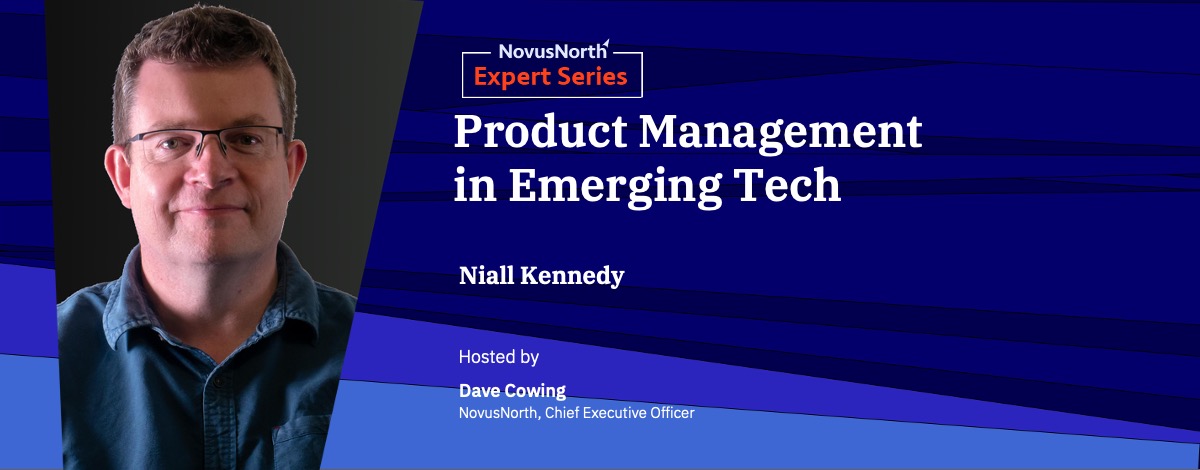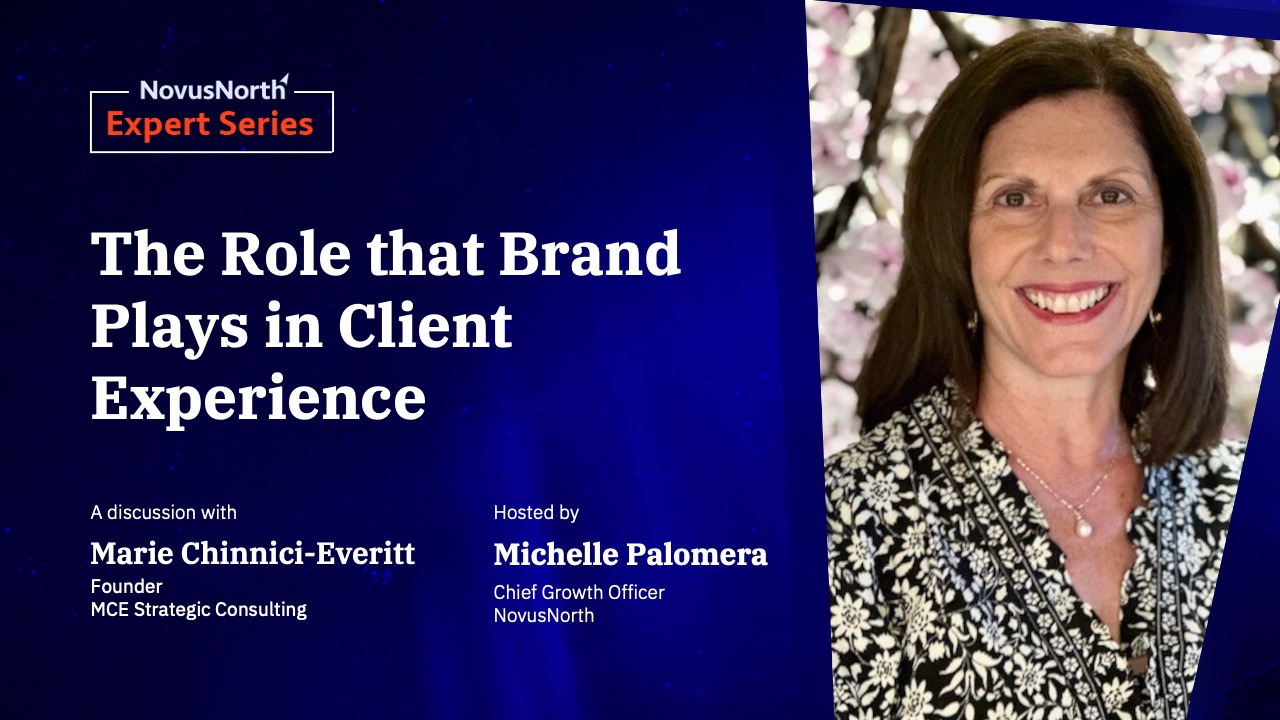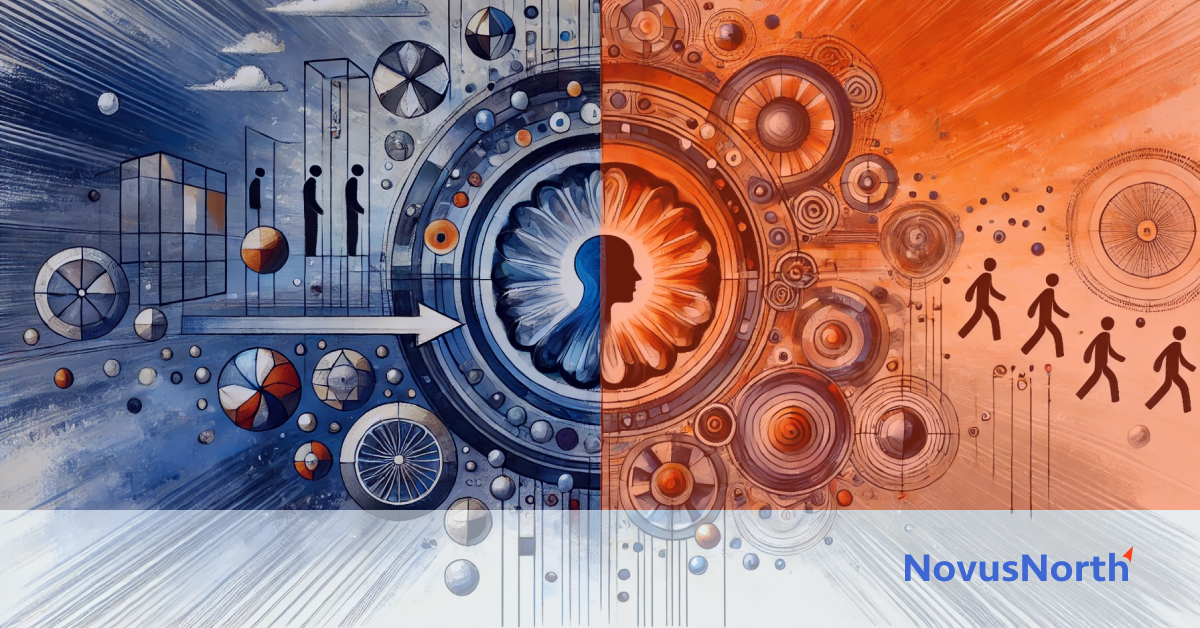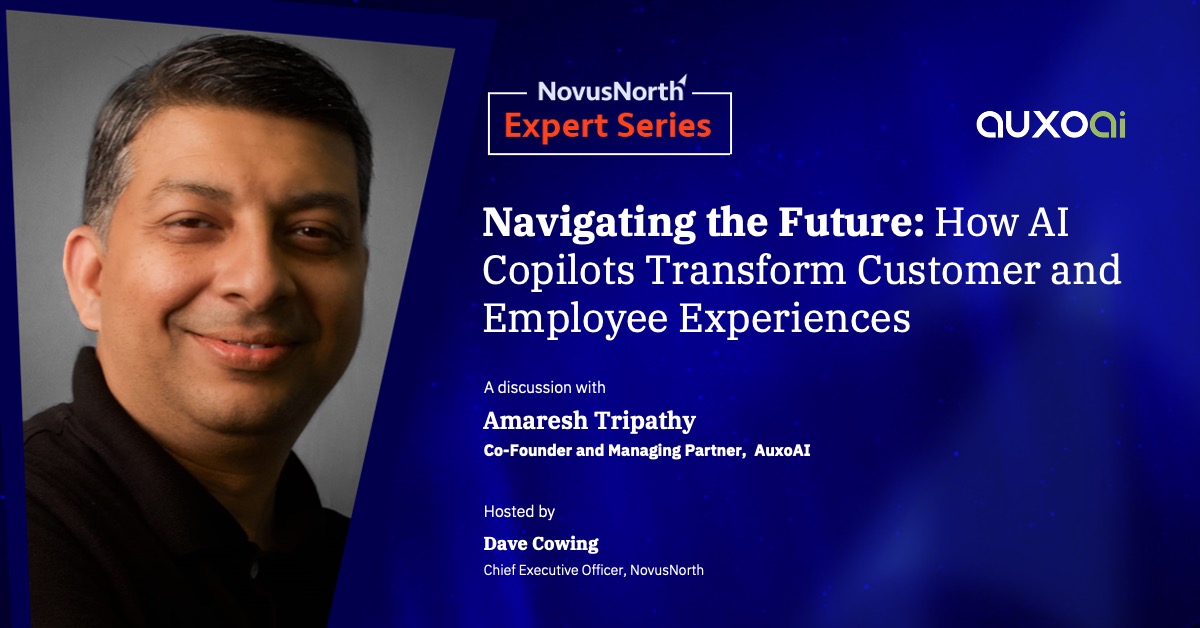In this edition of NovusNorth’s thought leadership conversation, Dave Cowing had an opportunity to speak with Niall Kennedy, Product Director at YellowDog.
Niall is a senior technology leader with strengths across product management & development, leadership & client-facing consulting/relationship management. His 25+ year career in technology spans Fintech and more recently, High Performance Computing, workload management and cloud. Niall is Product Director at YellowDog, the cloud workload management company. Niall drives product strategy and development on YellowDog’s innovative platform enabling customers to intelligently execute compute intensive workloads in any cloud, at any scale, anywhere.
NovusNorth is an expert-lead provider of product design, development, and delivery services for the FinTech and financial services industry. At NovusNorth, we believe that great digital experiences drive great business outcomes.
In this article, we summarize the conversation between Dave Cowing and Niall Kennedy.
Read the Transcript
Q: Can you tell us about your product and the problems you solve?
Niall Kennedy
YellowDog is a cloud workload management company. We enable people who have compute intensive workloads with access to cloud resources, at any scale they need, anywhere in the world. In the last couple of years, we’ve had the global pandemic. The COVID 19 vaccines that have hopefully helped us all overcome this pandemic, in probably a quicker time than not, were developed using compute intensive simulations that were provided, luckily, free of charge to the various research institutes throughout the world. But the key thing is the outcome, which is those vaccinate are available to people in a really short period of time compared to, historically, the development of other vaccinations over time. So, we’re all about workload management, getting it done in the cloud, and getting it done at the scale that people need to get it done at.
“What would you do if you had a supercomputer for the weekend?”
– Niall Kennedy
“What would you do if you had a supercomputer for the weekend?”
– Niall Kennedy
Q: Your product is in an emerging space; how do you anticipate what your customers’ needs are going to be and make the right bets?
Niall Kennedy
I think the key thing is focusing on outcomes. One of the questions we ask people in various different sessions is “What would you do if you had a supercomputer for the weekend?” And they kind of go, oh, well, I would do this and I would do that. But the key thing that people kind of gravitate towards is outcomes. I would make, for example, a new climate model, or I would do X, Y, and Z. If people gravitate towards those outcomes, that they’re used, then the key is that Yellow Dog is enabling the massive acceleration of those outcomes. And also, for people who really are not in an industry that will be for example, synonymous with using high performance computing or using supercomputers to say, actually, I can get to my outcome pretty quickly using a tool like Yellow Dog. So, I’ll give you some examples. We have the example of where we started off in the CGI industry. That’s computer-generated imagery for things like movies and animations, being able to allow them to develop a lot more of that great content, using the cloud to actually do the rendering that’s required. There’s other kind of parallel type patterns and abstracts that we have, as well in things like auto, automotive, aeronautics, and life sciences, where simulation tools are used to drive the models that will ultimately become the physical things that we can put our hands on. I was at a conference recently about, actually funny enough, the COVID-19 vaccinations. And the key thing a lot of the researchers say is compacting that time to science, which again, not to delay the to repeat what we’re saying, but that’s a great outcome of using compute at scale.
“Compacting time to science… that’s a great outcome using compute at scale”
– Niall Kennedy
“Compacting time to science… that’s a great outcome using compute at scale”
– Niall Kennedy
Q: What does this change mean for your customers?
Niall Kennedy
I think it’s a number of different things, we have customers that already have on-premise computers, on-premise compute or on-premise compute grids that they’ve used over a period of years. And you have customers that are effectively cloud native who are used to operating in the cloud. But essentially, what it boils down to is a move from an allocation model. So for example, we go out and we buy office supplies and we buy Office desks and we say you sit here, you sit there, and you allocate that particular cost to that particular cost center. And you know, that might get depreciated over three to four years. But if you had to go out and rent the chair, then you’re moving to a to a consumption model. And I think the key thing, from a philosophical standpoint, is moving from an allocation model to a consumption model, where ultimately, you’re moving from a CAPex to an OPex view of the world when you’re using compute. But the key thing with this really is, again, all about outcomes. Consumption versus allocation is one thing you’ve got to be aware of, but it’s also, again, compacting that time to science. What would you do in your business, if you could shorten product lifecycle durations and get stuff out the door quicker?
“What would you do in your business, if you could shorten product lifecycle durations and get stuff out the door quicker?”
– Niall Kennedy
“What would you do in your business, if you could shorten product lifecycle durations and get stuff out the door quicker?”
– Niall Kennedy
Q: How do you stay relevant in an emerging industry? How do you determine what the next thing is that you need to do?
Niall Kennedy
There’s the old adage ‘fail fast’. I pivot that definition a little bit by saying what you really need to get is actionable insight. So, you really need to be able to get early market feedback. And in certain cases, you may be in a situation where you have a section of your product which effectively is good, and people can see the value, but you might be a little bit early coming to the market with that. But there’s no harm in going out and getting that particular feedback from people and being totally honest with them, and then being totally honest with yourself. But the key thing is there’s stuff that you develop sometimes can come in a cycle. So, get the actionable insight as soon as you can. Keep it. Park it. It may come back again in a different kind of a cycle. And continually be executing, inspecting, and adapting, because nobody has the monopoly on being right, you really have to go through cycles on this. In an emerging industry trends don’t develop suddenly, they’re not stuff you can look up on the internet and kind of go, yeah, there’s the trend. These things might take time to appear, they may change. But the key thing is always be inspecting, always be always be adapting.
“Continually be executing, inspecting and adapting.”
– Niall Kennedy
“Continually be executing, inspecting and adapting.”
– Niall Kennedy
Q: Many people talk about fail fast, but then penalize/avoid failing altogether, how do you build a culture that enables developing these actionable insights?
Niall Kennedy
I think a key would be not to call it fail fast, and that’s why I prefer the term actionable insight because it doesn’t have a negative connotation per se. You could actually succeed fast as well. Which people kind of don’t think of as something that’s in the negative sphere of things. But you have to be open. You have to be open with your culture in a company. People have to know that this is something we’re trying out. Or this is something that our research leads us to here, but we need to go out and talk to people. We need to have that culture of openness so people understand that there may be things here that we may not take forward, there may be things that we might accelerate, there may be things that we might park. But the key thing is, you have to have that culture of openness. And ultimately, you know, it goes back to the old, there’s no I in team, it has to be shared wins and losses, you know, there’s none of this kind of inventor type thing, who goes out and suddenly the whole company is lifted by this thing. It’s a collegial and an all-encompassing effort to get product out the door at these days, and that the key thing is shared wins, shared losses.
“The key is shared wins and shared loses”
– Niall Kennedy
“The key is shared wins and shared loses”
– Niall Kennedy
Q: What are the top three lessons or tips that you’d share with product managers that are in emerging tech spaces?
Niall Kennedy
From my perspective, there’s a lot of reading and researching, looking at other industries and finding paths where other industries have evolved and matured. Are there parallels that you can draw from that. And I think, as humankind, we tend to be following kind of big strands of things. And we’re just on different parts of the journey in different industries.
I think that’s the first thing is always reading research and look for parallels in other places and see how those industries have developed. And what has happened to the products and those industries? How have they stayed relevant? Test driving, as we said about the actionable insight, is really, really important. You know, even if it’s written down, you have a conversation with a potential prospect at an event or at an exhibition and test drive, ask the question, what would you do? What would you do if you had a supercomputer for the weekend, and you may get many different answers. But test driving is really, really key.
And I think, lastly, even though test driving is a great thing, if you can represent things visually, like in a prototype style, you get more and more of people kind of going, “ah, I see, I see where you’re going with this”. And the interesting thing about that is because people have different backgrounds and biases, and different experiences, you may be then looking at your prototype, and then actually looking left or right of it and not down the center. But I think a lot of people see things visually, and they kind of go, “oh, I get it, I see what you mean, what if you did this,” and they’d start pointing at a screen or pointing at a piece of paper going, “if you did this, this would really help me out.” For an emerging space that’s sometimes the best thing. Even if you have to draw with crayons something visual that people can put their put their hands on is so much better than not.
Q: How would you recommend folks do as they product management in the emerging tech space?
Niall Kennedy
I think for product management in general, is having either knowledge or experience in the other pieces of the business that drive a business towards its existence. towards its continuous and continuing viability. So, for example, my experience was in develop management, it was in professional services, and client services. So, I got to see it from an implementation side of things, I got to see it from a support side of things. And I think that kind of gives you a more rounded view of the experience of not only the people using your software, day to day, but also the people who implement it, the people who support it. What are their thought processes? What are their experiences? For emerging industries, it’s a little bit harder I think, putting your finger in emerging industry is a harder thing. From my experience, I think I’ve said it further up, reading and researching, even if it’s outside of your direct space, is always a good thing to do. Follow the people you know, the Bill Gates of the world or follow the Mark Cubans of the world or whoever just to see what they’re talking about. And kind of get a feel for general trends and then look for companies that seem to be making a difference in those particular spaces. And be flexible. Sometimes people come into a role with experience, but sometimes it’s more about the drive to know more. Okay, are there parallels – what else can we bring to bear on this? Because a new industry is a new industry. There may not be always a reference point which you can sail your ship by.
About The Experts
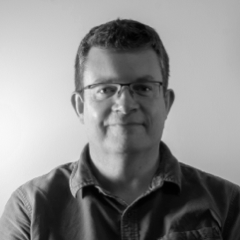
Niall Kennedy
Product Management and Technology Leader
Niall is a senior technology leader with strengths across product management & development, leadership & client-facing consulting/relationship management. His 25+ year career in technology spans Fintech and more recently, High Performance Computing, workload management and cloud. Niall is Product Director at YellowDog, the cloud workload management company. Niall drives product strategy and development on YellowDog’s innovative platform enabling customers to intelligently execute compute intensive workloads in any cloud, at any scale, anywhere.

Dave Cowing
Chief Executive Officer and Co-Founder of NovusNorth
NovusNorth is an outcome-oriented experience consultancy that drives business results by creating compelling experiences for customers and employees in the fintech and financial services industry. Dave has 30 years of experience helping companies ranging from Fortune 500 market leaders to disruptive startups with new ideas.
In this edition of NovusNorth’s thought leadership conversation, Dave Cowing had an opportunity to speak with Niall Kennedy, Product Director at YellowDog.
Niall is a senior technology leader with strengths across product management & development, leadership & client-facing consulting/relationship management. His 25+ year career in technology spans Fintech and more recently, High Performance Computing, workload management and cloud. Niall is Product Director at YellowDog, the cloud workload management company. Niall drives product strategy and development on YellowDog’s innovative platform enabling customers to intelligently execute compute intensive workloads in any cloud, at any scale, anywhere.
NovusNorth is an expert-lead provider of product design, development, and delivery services for the FinTech and financial services industry. At NovusNorth, we believe that great digital experiences drive great business outcomes.
In this article, we summarize the conversation between Dave Cowing and Niall Kennedy.
Read the Transcript
Q: Can you tell us about your product and the problems you solve?
Niall Kennedy
YellowDog is a cloud workload management company. We enable people who have compute intensive workloads with access to cloud resources, at any scale they need, anywhere in the world. In the last couple of years, we’ve had the global pandemic. The COVID 19 vaccines that have hopefully helped us all overcome this pandemic, in probably a quicker time than not, were developed using compute intensive simulations that were provided, luckily, free of charge to the various research institutes throughout the world. But the key thing is the outcome, which is those vaccinate are available to people in a really short period of time compared to, historically, the development of other vaccinations over time. So, we’re all about workload management, getting it done in the cloud, and getting it done at the scale that people need to get it done at.
“What would you do if you had a supercomputer for the weekend?”
– Niall Kennedy
“What would you do if you had a supercomputer for the weekend?”
– Niall Kennedy
Q: Your product is in an emerging space; how do you anticipate what your customers’ needs are going to be and make the right bets?
Niall Kennedy
I think the key thing is focusing on outcomes. One of the questions we ask people in various different sessions is “What would you do if you had a supercomputer for the weekend?” And they kind of go, oh, well, I would do this and I would do that. But the key thing that people kind of gravitate towards is outcomes. I would make, for example, a new climate model, or I would do X, Y, and Z. If people gravitate towards those outcomes, that they’re used, then the key is that Yellow Dog is enabling the massive acceleration of those outcomes. And also, for people who really are not in an industry that will be for example, synonymous with using high performance computing or using supercomputers to say, actually, I can get to my outcome pretty quickly using a tool like Yellow Dog. So, I’ll give you some examples. We have the example of where we started off in the CGI industry. That’s computer-generated imagery for things like movies and animations, being able to allow them to develop a lot more of that great content, using the cloud to actually do the rendering that’s required. There’s other kind of parallel type patterns and abstracts that we have, as well in things like auto, automotive, aeronautics, and life sciences, where simulation tools are used to drive the models that will ultimately become the physical things that we can put our hands on. I was at a conference recently about, actually funny enough, the COVID-19 vaccinations. And the key thing a lot of the researchers say is compacting that time to science, which again, not to delay the to repeat what we’re saying, but that’s a great outcome of using compute at scale.
“Compacting time to science… that’s a great outcome using compute at scale”
– Niall Kennedy
“Compacting time to science… that’s a great outcome using compute at scale”
– Niall Kennedy
Q: What does this change mean for your customers?
Niall Kennedy
I think it’s a number of different things, we have customers that already have on-premise computers, on-premise compute or on-premise compute grids that they’ve used over a period of years. And you have customers that are effectively cloud native who are used to operating in the cloud. But essentially, what it boils down to is a move from an allocation model. So for example, we go out and we buy office supplies and we buy Office desks and we say you sit here, you sit there, and you allocate that particular cost to that particular cost center. And you know, that might get depreciated over three to four years. But if you had to go out and rent the chair, then you’re moving to a to a consumption model. And I think the key thing, from a philosophical standpoint, is moving from an allocation model to a consumption model, where ultimately, you’re moving from a CAPex to an OPex view of the world when you’re using compute. But the key thing with this really is, again, all about outcomes. Consumption versus allocation is one thing you’ve got to be aware of, but it’s also, again, compacting that time to science. What would you do in your business, if you could shorten product lifecycle durations and get stuff out the door quicker?
“What would you do in your business, if you could shorten product lifecycle durations and get stuff out the door quicker?”
– Niall Kennedy
“What would you do in your business, if you could shorten product lifecycle durations and get stuff out the door quicker?”
– Niall Kennedy
Q: How do you stay relevant in an emerging industry? How do you determine what the next thing is that you need to do?
Niall Kennedy
There’s the old adage ‘fail fast’. I pivot that definition a little bit by saying what you really need to get is actionable insight. So, you really need to be able to get early market feedback. And in certain cases, you may be in a situation where you have a section of your product which effectively is good, and people can see the value, but you might be a little bit early coming to the market with that. But there’s no harm in going out and getting that particular feedback from people and being totally honest with them, and then being totally honest with yourself. But the key thing is there’s stuff that you develop sometimes can come in a cycle. So, get the actionable insight as soon as you can. Keep it. Park it. It may come back again in a different kind of a cycle. And continually be executing, inspecting, and adapting, because nobody has the monopoly on being right, you really have to go through cycles on this. In an emerging industry trends don’t develop suddenly, they’re not stuff you can look up on the internet and kind of go, yeah, there’s the trend. These things might take time to appear, they may change. But the key thing is always be inspecting, always be always be adapting.
“Continually be executing, inspecting and adapting.”
– Niall Kennedy
“Continually be executing, inspecting and adapting.”
– Niall Kennedy
Q: Many people talk about fail fast, but then penalize/avoid failing altogether, how do you build a culture that enables developing these actionable insights?
Niall Kennedy
I think a key would be not to call it fail fast, and that’s why I prefer the term actionable insight because it doesn’t have a negative connotation per se. You could actually succeed fast as well. Which people kind of don’t think of as something that’s in the negative sphere of things. But you have to be open. You have to be open with your culture in a company. People have to know that this is something we’re trying out. Or this is something that our research leads us to here, but we need to go out and talk to people. We need to have that culture of openness so people understand that there may be things here that we may not take forward, there may be things that we might accelerate, there may be things that we might park. But the key thing is, you have to have that culture of openness. And ultimately, you know, it goes back to the old, there’s no I in team, it has to be shared wins and losses, you know, there’s none of this kind of inventor type thing, who goes out and suddenly the whole company is lifted by this thing. It’s a collegial and an all-encompassing effort to get product out the door at these days, and that the key thing is shared wins, shared losses.
“The key is shared wins and shared loses”
– Niall Kennedy
“The key is shared wins and shared loses”
– Niall Kennedy
Q: What are the top three lessons or tips that you’d share with product managers that are in emerging tech spaces?
Niall Kennedy
From my perspective, there’s a lot of reading and researching, looking at other industries and finding paths where other industries have evolved and matured. Are there parallels that you can draw from that. And I think, as humankind, we tend to be following kind of big strands of things. And we’re just on different parts of the journey in different industries.
I think that’s the first thing is always reading research and look for parallels in other places and see how those industries have developed. And what has happened to the products and those industries? How have they stayed relevant? Test driving, as we said about the actionable insight, is really, really important. You know, even if it’s written down, you have a conversation with a potential prospect at an event or at an exhibition and test drive, ask the question, what would you do? What would you do if you had a supercomputer for the weekend, and you may get many different answers. But test driving is really, really key.
And I think, lastly, even though test driving is a great thing, if you can represent things visually, like in a prototype style, you get more and more of people kind of going, “ah, I see, I see where you’re going with this”. And the interesting thing about that is because people have different backgrounds and biases, and different experiences, you may be then looking at your prototype, and then actually looking left or right of it and not down the center. But I think a lot of people see things visually, and they kind of go, “oh, I get it, I see what you mean, what if you did this,” and they’d start pointing at a screen or pointing at a piece of paper going, “if you did this, this would really help me out.” For an emerging space that’s sometimes the best thing. Even if you have to draw with crayons something visual that people can put their put their hands on is so much better than not.
Q: How would you recommend folks do as they product management in the emerging tech space?
Niall Kennedy
I think for product management in general, is having either knowledge or experience in the other pieces of the business that drive a business towards its existence. towards its continuous and continuing viability. So, for example, my experience was in develop management, it was in professional services, and client services. So, I got to see it from an implementation side of things, I got to see it from a support side of things. And I think that kind of gives you a more rounded view of the experience of not only the people using your software, day to day, but also the people who implement it, the people who support it. What are their thought processes? What are their experiences? For emerging industries, it’s a little bit harder I think, putting your finger in emerging industry is a harder thing. From my experience, I think I’ve said it further up, reading and researching, even if it’s outside of your direct space, is always a good thing to do. Follow the people you know, the Bill Gates of the world or follow the Mark Cubans of the world or whoever just to see what they’re talking about. And kind of get a feel for general trends and then look for companies that seem to be making a difference in those particular spaces. And be flexible. Sometimes people come into a role with experience, but sometimes it’s more about the drive to know more. Okay, are there parallels – what else can we bring to bear on this? Because a new industry is a new industry. There may not be always a reference point which you can sail your ship by.
About The Experts

Niall Kennedy
Product Management and Technology Leader
Niall is a senior technology leader with strengths across product management & development, leadership & client-facing consulting/relationship management. His 25+ year career in technology spans Fintech and more recently, High Performance Computing, workload management and cloud. Niall is Product Director at YellowDog, the cloud workload management company. Niall drives product strategy and development on YellowDog’s innovative platform enabling customers to intelligently execute compute intensive workloads in any cloud, at any scale, anywhere.

Dave Cowing
Chief Executive Officer and Co-Founder of NovusNorth
NovusNorth is an outcome-oriented experience consultancy that drives business results by creating compelling experiences for customers and employees in the fintech and financial services industry. Dave has 30 years of experience helping companies ranging from Fortune 500 market leaders to disruptive startups with new ideas.
Let’s Talk!
Trying to find your new north? Get in touch to find out how we can work together to achieve the business outcomes you need.
Our Latest Insights
Founder and Principal of MCE Strategic Consulting Marie Chinnici-Everitt, shares how companies can make a stronger connection between their brand and delivering a superior client experience in today’s competitive landscape in financial services.
By NovusNorth
Client Experience is critical now more than ever. Here are practical strategies for shifting to a client-centric culture and aligning your organization.
By Michelle Palomera
Co-founder and Managing Partner of AuxoAI, Amaresh Tripathy on how enterprises can harness AI copilots to provide enterprise value while improving experience for customers and employees.
By NovusNorth
